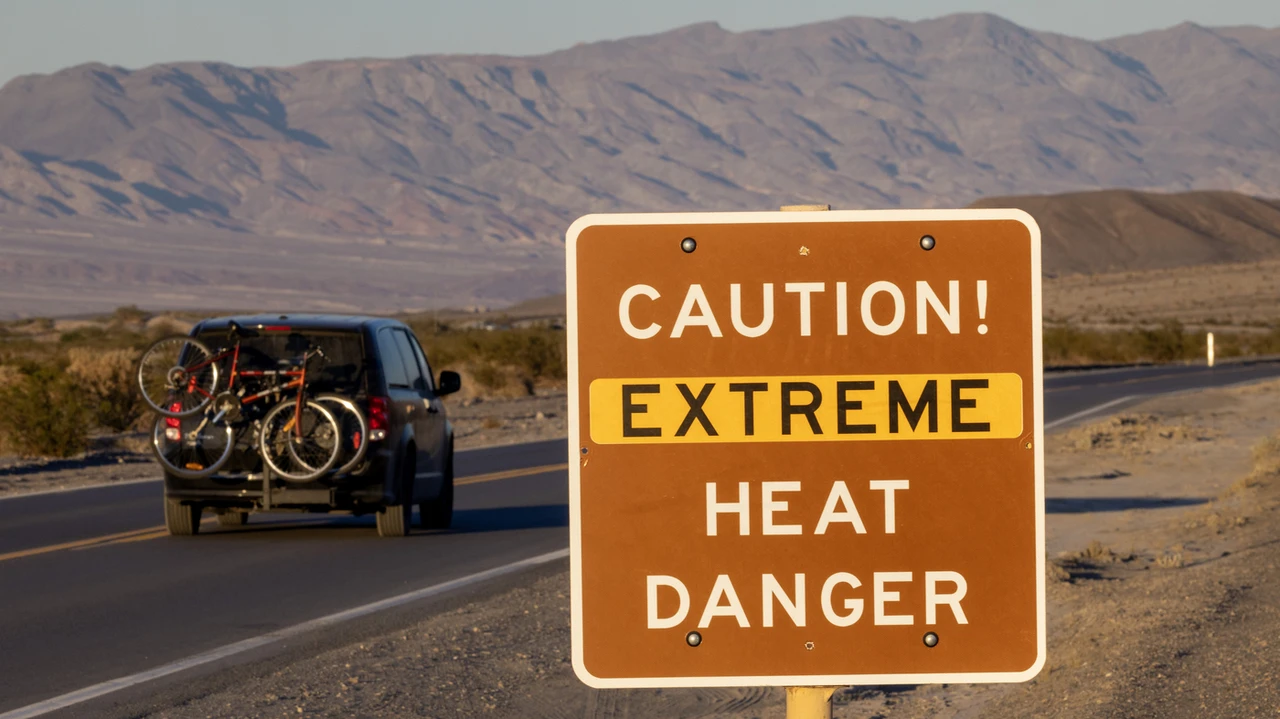Extreme heat estimated to kill almost 500,000 people annually: UN Chief
 A car passes a sign warning of extreme heat danger on the eve of a day. July 15, 2023 near Furnace Creek, California. (Photo by David McNew via Getty Images)
A car passes a sign warning of extreme heat danger on the eve of a day. July 15, 2023 near Furnace Creek, California. (Photo by David McNew via Getty Images)
United Nations Secretary-General Antonio Guterres highlighted the escalating threat of extreme heat to the global community on Thursday, noting that it is estimated to cause nearly 500,000 deaths annually, a toll 30 times higher than that of tropical cyclones.
“Heat is estimated to kill almost half a million people a year, that’s about 30 times more than tropical cyclones,” Guterres stated. “We know what is driving it – fossil fuel-charged, human-induced climate change. And we know it’s going to get worse.”
The new abnormal: Economic and social impacts
Guterres emphasized that extreme heat has become “the new abnormal,” affecting economies, widening inequalities, undermining the U.N.’s Sustainable Development Goals, and causing numerous fatalities. Despite this grim outlook, he reassured that proactive measures can save lives and mitigate the impact.
To address the crisis, Guterres announced a global initiative focusing on four key areas: protecting the most vulnerable populations, enhancing worker protections, increasing economic and societal resilience through data and science, and shifting fossil fuel subsidies to renewable energy sources.
Tackling climate crisis: Beyond extreme heat
“Today, our focus is on the impact of extreme heat. But let’s not forget that there are many other devastating symptoms of the climate crisis: ever-more fierce hurricanes, floods, droughts, wildfires, and rising sea levels,” he added.
In his call to action, Guterres underscored the urgent need to combat the underlying cause of these symptoms. “We need to fight the disease. The disease is the madness of incinerating our only home. The disease is the addiction to fossil fuels. The disease is climate inaction.”
He urged the G20 nations to redirect fossil fuel subsidies toward renewable energy and to support vulnerable countries and communities.
“The message is clear: The heat is on. Extreme heat is having an extreme impact on people and the planet. The world must rise to the challenge of rising temperatures,” Guterres concluded.



